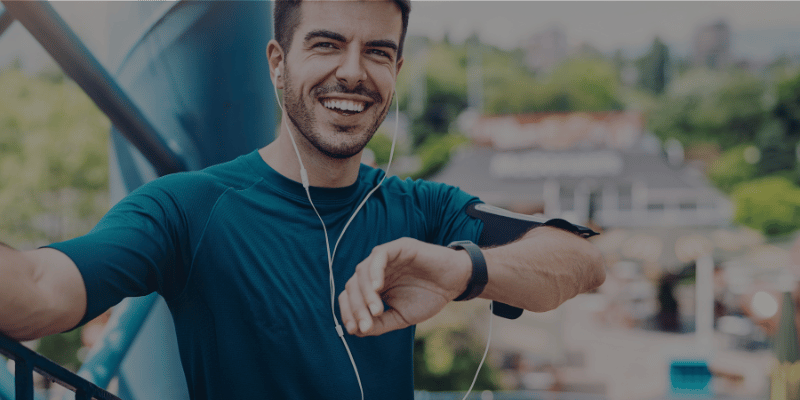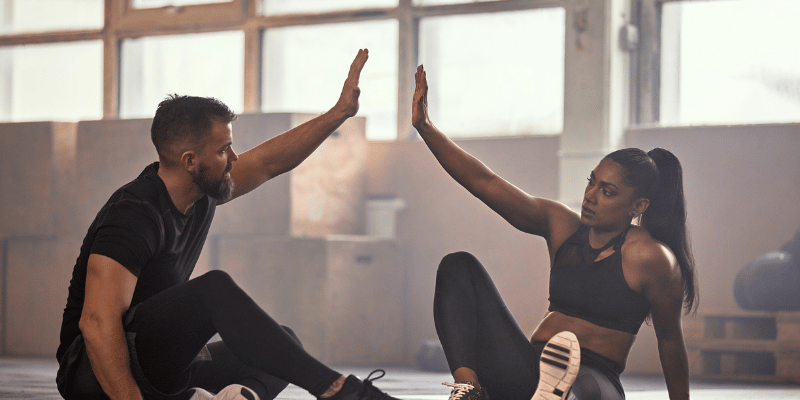Fitness trackers and smart watches have been popular among tech geeks and fitness enthusiasts for a period of time.
The thirst for data about our fitness and health is helping many people keep track of various biometrics from heart health, stress levels, sleep quality, calorie expenditure, activity tracking and more.
In fact, it is evident in search that consumers are increasingly searching for devices that track their health and fitness holistically versus pure activity tracking.
Let’s tack a look at the trends.
Fitness Trackers Declining In Search Volume
The most common use for wearable tracking devices has been to track fitness and physical activity. Whether that’s for tracking your calorie expenditure on a daily walk, your pace or intensity for a run or your steps taken throughout the day. But fitness trackers as a search term has been on the steady decline as shown below. Analysing google trends shows that the peak in search for ‘fitness tracker’ was in 2017 as people’s search behaviour has increasingly moved towards searching for devices that offer more than simply fitness tracking.

Also, as shown below fitness watches and heart rate monitors are steadily declining. Although, it should be noted that search for ‘heart rate monitors’ include devices outside wearable devices and include various heart rate health devices. However, it is predicted that ‘heart rate monitor watches’ related searches have relatively low volume in comparison to other search categories and displays similar steady declining trends.

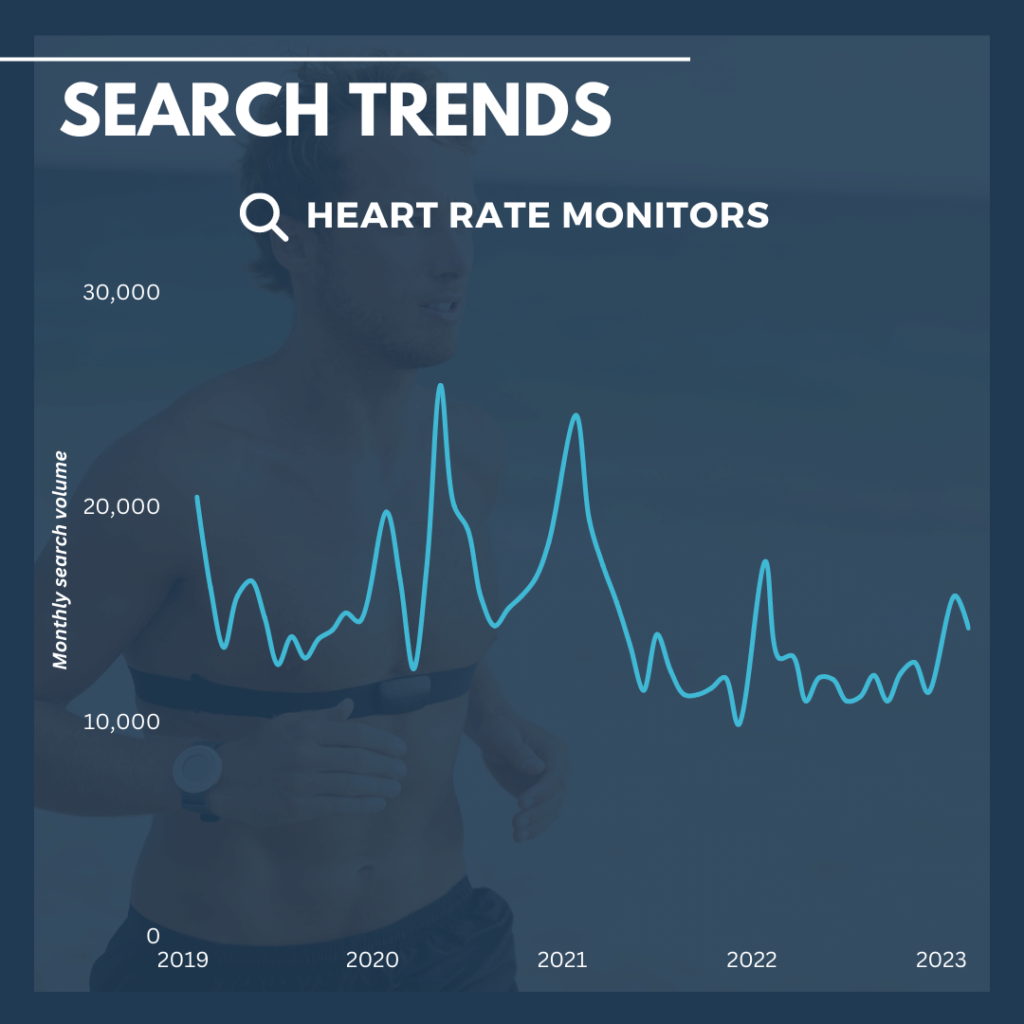
Sleep is A Key Biometric to Track
Sleep disorders are reportedly on the rise which has made sleep quality a key biometric for people to track. Whilst, there isn’t any significant trends displayed in the graph below, the monthly average search volume highlights that people are interested in tracking their sleep quality. Furthermore, it demonstrates that people have a desire to track metrics beyond fitness and activity levels.

Consumers Increasingly Searching For Holistic Health Devices
Consumers are wanting more from their trackable devices than just activity or fitness tracking. This is highlighted in the steady incline in search for ‘smart watches’ and ‘smart ring’. People want a device that includes all key biomarkers of fitness and health for everyday lifestyle. In particular, for fitness enthusiasts there is rising interest to understand how their fitness and activity levels are impacting their overall well-being.
SMART watches receive the largest amount of monthly search versus other categories such as fitness trackers and SMART rings. However, the rise in search for ‘smart ring’ highlights that consumers are interested in being able to track their biometric data consistently throughout the day and night.
SMART wearable devices are expanding out from SMART watches as there might be occasions or circumstances where a SMART watch may not be the desired wearable. For example, watches might be less comfortable to wear at night or a ring might be more suitable for a particular occasion.


Which Brands are Trending in Search?
Consumers are also brand conscious when it comes to wearable devices. Brands such as Garmin, Apple, Polar, Fitbit and Samsung are popular among health and fitness enthusiasts in particular.
While Fitbit brand search has been in steady decline, they still occupy a higher monthly average search than Garmin. This is likely due to that Garmin’s appeal is to regular fitness and sports populations whereas Fitbit caters more for everyday activity tracking use and the general population.


Fitbit’s decline in brand search is consistent with the decline in fitness trackers (which is what Fitbit has been mainly recognised for). Although, Fitbit have developed their own SMART watch range and as highlighted in the trend graph below their Fitbit Sense model has steadily increased YOY in search volume.
These trends are further vindication that consumers are increasingly looking for SMART watches over fitness trackers to be able to track holistic health and well-being.
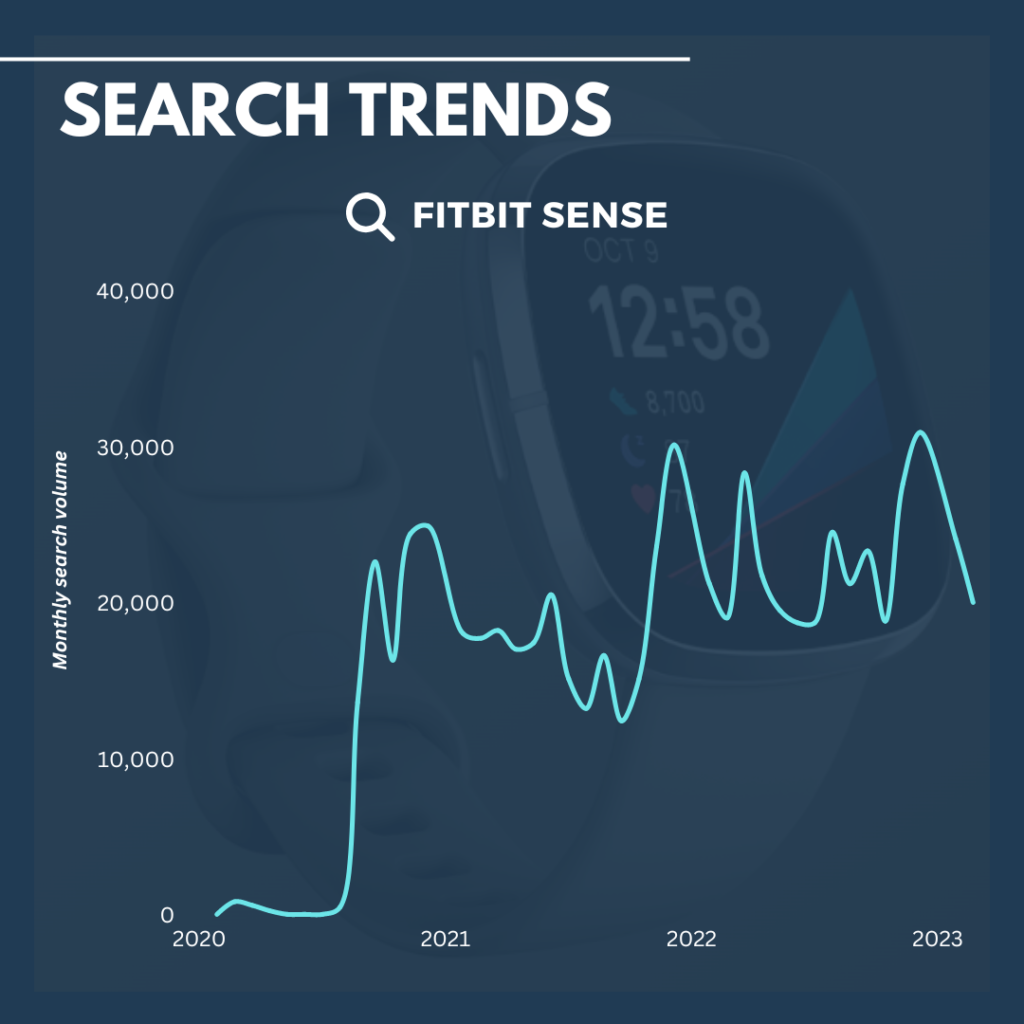
However, it will be interesting to keep tabs on Fitbit’s recent collaboration with Google. They have provided built in technology for Google’s first SMART Watch and set to rival Apple and Samsung. Although, Apple and Samsung SMART watches continue to increase in search volume YOY with significant peaks around Christmas and the Holiday season. It’s too early to predict what effect Fitbit and Google’s collaboration will have on Apple and Samsung share of search. But be rest assured we will be keeping a key eye on future trends!
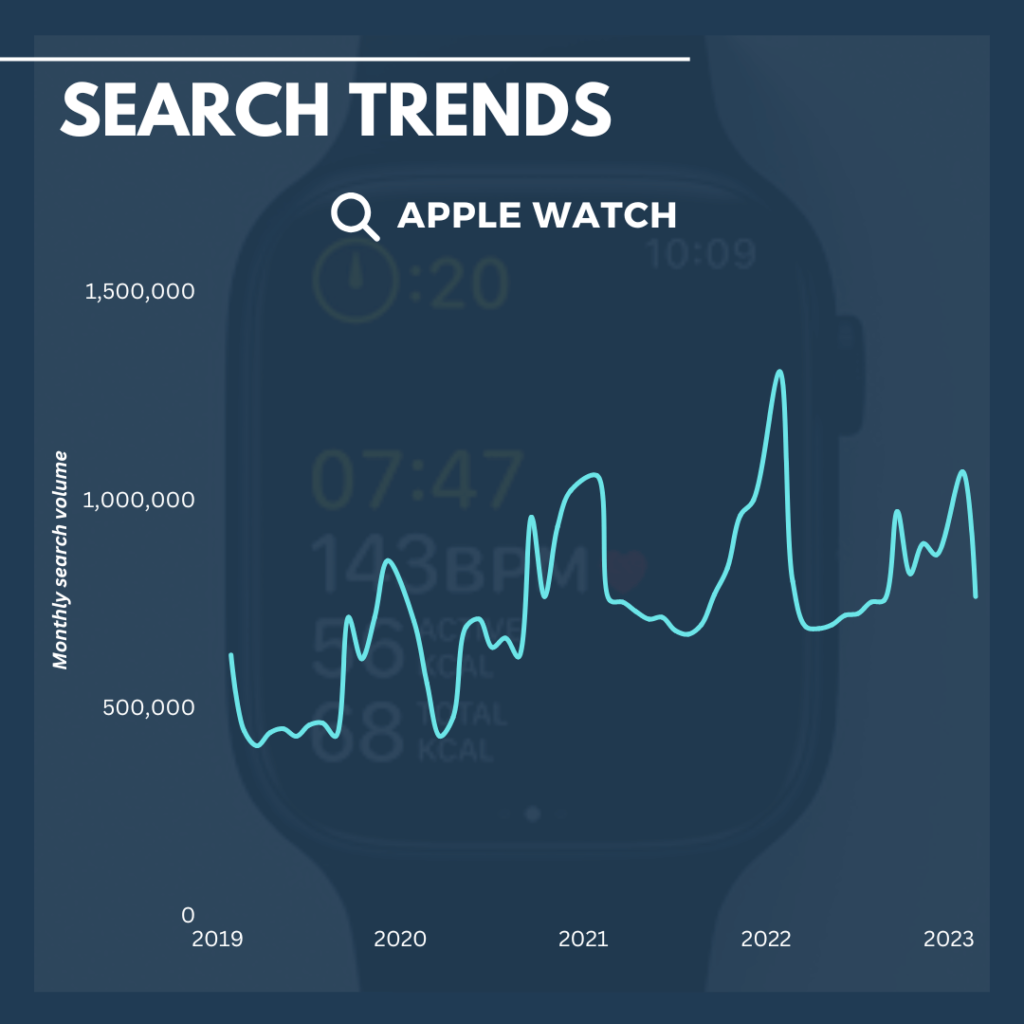

SMART Devices Become Fashionable
Oura, a leading brand for SMART rings and Whoop, a leading SMART health and fitness band continue to rise in search volume. Both Oura and Whoop provide tracking for a range of biometrics such as VO2max, respiratory rate, sleep quality, stress levels and activity tracking.
Both brands are positioning their products to combine style, fashion and providing personalised feedback in real-time regarding your health and lifestyle.


COVID has Made Consumers Increasingly Health Conscious
A survey by Deloitte in 2021 found that people who own SMART watches also analyse the biometrics for possible COVID-19 symptoms and potential chronic conditions.
The survey was conducted on US based SMART watch owners and the image below show the results of what people measure on their SMART watch:
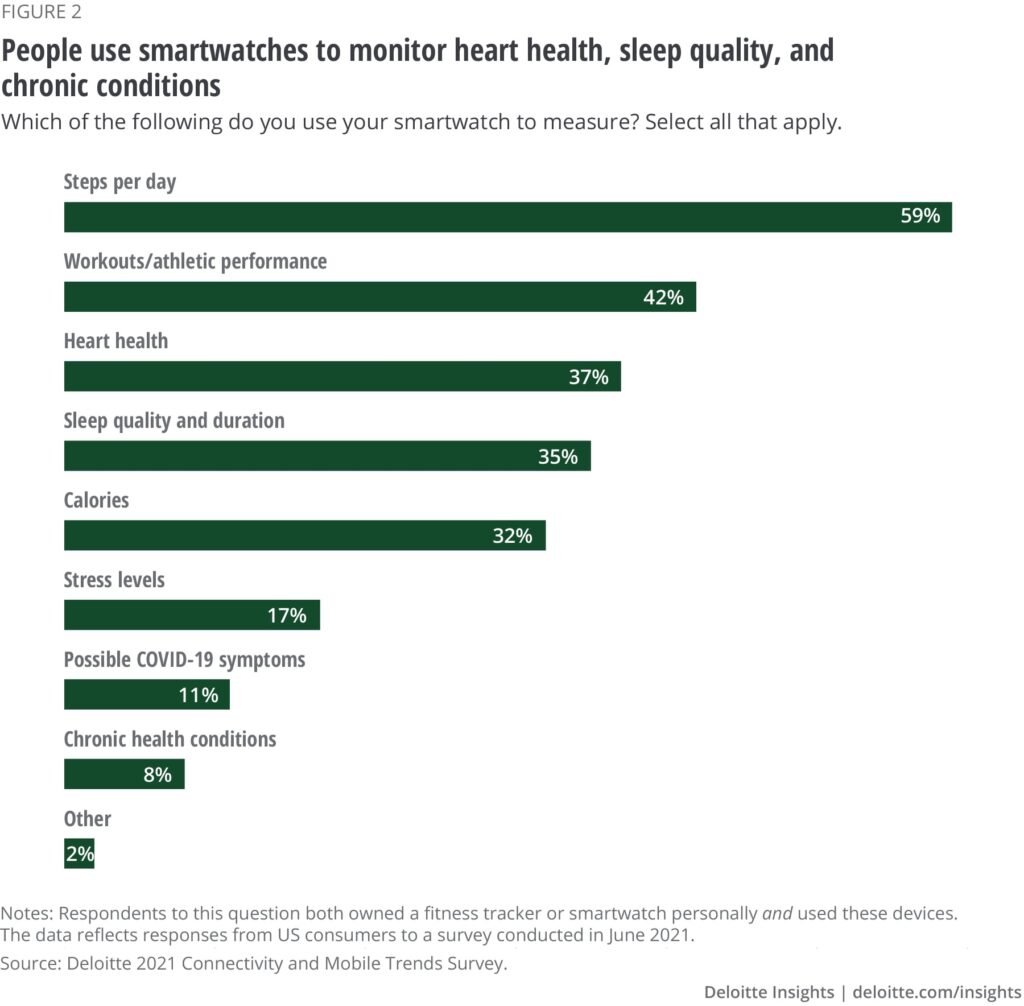
The measurement of respiratory rate, specifically measuring blood oxygen saturation (SpO2) has become a sort after feature. Particularly, as the awareness spread about COVID effects on lung function, people used SMART devices to monitor SpO2 for low blood oxygen levels.
SMART Devices are Forecasted to Continue to Rise in Popularity
As the digital health and fitness revolution continues to gather pace, the search trends indicate that SMART devices and wearable technology that provide data on overall health and well-being are primed to meet consumer demands.
Consumers are increasingly demanding personalised feedback from their SMART device data. Also, they want to be able to wear the device 24/7 and require the device to be stylish and comfortable to wear.
Whilst brands like Oura and Whoop are yet to reach the same search volumes as SMART watches, their increase in search demand over the last two years indicate a growing trend for:
- Personalised data and insight on all aspects of health and well-being.
- Style and comfort.
- Connectivity with apps and secondary devices.
Data Sources:
- Google trends
- Semrush
- Google ads keyword planner

